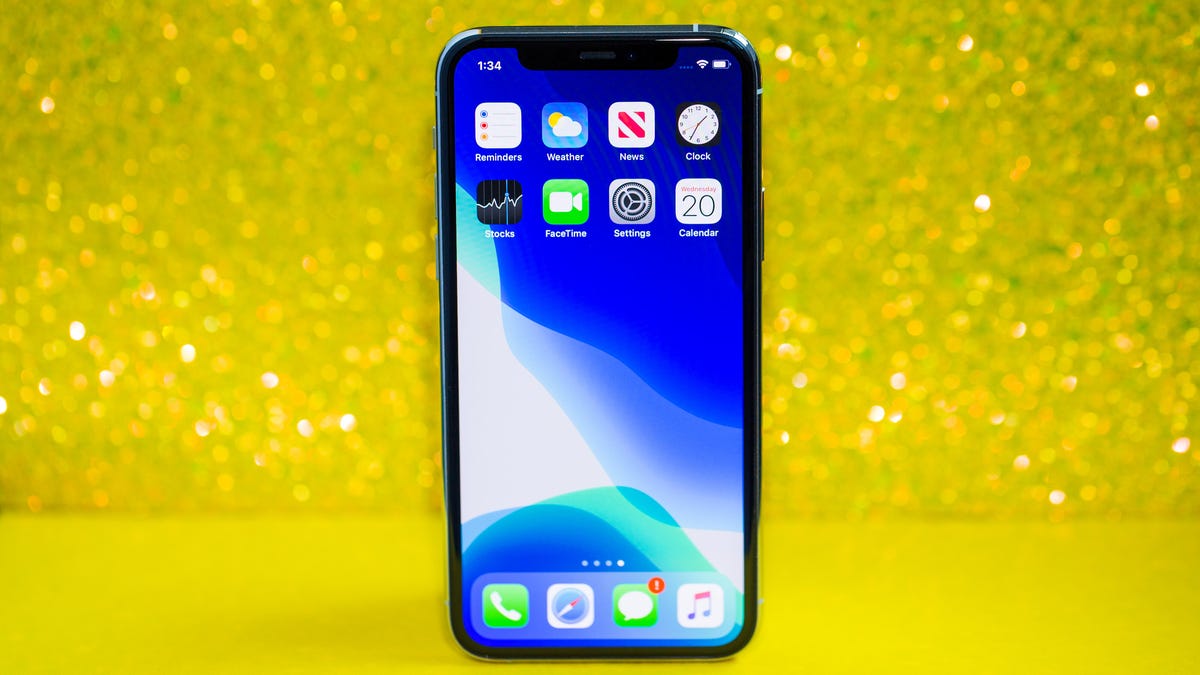Apple reportedly ditched plan for encrypted iCloud backup after FBI pressure
The company wanted to offer people end-to-end encryption for iCloud two years ago, according to Reuters.

The FBI may have convinced Apple to change its iCloud plans.
Apple reversed course on a plan to enable people to fully encrypt backups of their iPhone data on its iCloud service after the FBI aired concerns that it would hurt investigations, Reuters reported Tuesday.
About two years ago, Apple reportedly told the FBI it wanted to make hacking its cloud storage service more difficult by offering people end-to-end encryption. If it did so, Reuters reported, Apple would be unable to hand iCloud data over to authorities -- which didn't sit well with the FBI.
The plan was dropped the following year, with one Apple employee saying the company's legal department "killed it, for reasons you can imagine," according to Reuters.
The report comes a week after President Donald Trump slammed Apple for refusing to create backdoors that would help law enforcement agencies unlock iPhones, specifically in a Department of Justice investigation of a deadly naval base shooting last month in Florida. The company responded by saying it gave the FBI the gunman's account information, iCloud backups and transactional data linked to the iPhone.
Apple declined to comment on the Reuters story. The FBI didn't immediately respond to a request for comment.
Apple's privacy push
Apple has taken a strong stance over the years to protect user privacy. The company makes money from selling hardware and services, not from selling user data for things like targeted advertising. CEO Tim Cook has vowed time and again to maintain customer privacy for features such as the company's mobile payments service, Apple Pay.
In 2016, Apple faced off against the Justice Department in a high-profile case involving an iPhone used in a 2015 terrorist attack in San Bernardino, California. Apple helped pull data from the attacker's iCloud account, but some dates were missing. The company refused to make software to unlock the iPhone 5C, and the FBI took Apple to court. The case set up a grand legal battle between security and privacy. Because the case never went to trial -- the FBI found another way to get into the phone without Apple's help -- we never got an answer on whether security or privacy takes priority.
Apple continues to assist the FBI and other legal authorities, but it also has pushed technologies that means not even Apple can access some user data. It has moved to encrypt more of its services by default, which scrambles the data and means that only the people with the right keys or password can access it. Tech firms and privacy advocates argue that encryption is essential to secure personal information and communications. The government and law enforcement officials counter that encryption hurts their ability to investigate criminal and terrorist activity.
Data stored in Apple's iCloud -- like your recent iMessages, photos and other data -- are encrypted when they're sent from your phone to the cloud and while stored in iCloud. "For certain sensitive information, Apple uses end-to-end encryption," the company says on a support page. "This means that only you can access your information, and only on devices where you're signed into iCloud. No one else, not even Apple, can access end-to-end encrypted information."
With its current setup, Apple also can access iCloud backups when requested by authorities. In the case of the Florida naval base shooting, Apple turned over the shooter's iCloud backups. Had it made the changes it considered two years ago, as reported by Reuters, it wouldn't have the keys to unlock the encrypted data and hand it over to law enforcement, even if ordered to do so by a court.
"In private talks with Apple soon after, representatives of the FBI's cybercrime agents and its operational technology division objected to the plan, arguing it would deny them the most effective means for gaining evidence against iPhone-using suspects," Reuters reported.
The story originally published at 6:01 a.m. PT on Jan. 21.
Updates at 7 a.m. and 9:30 a.m.: Adds Apple's reply to a request for comment and adds background details.



